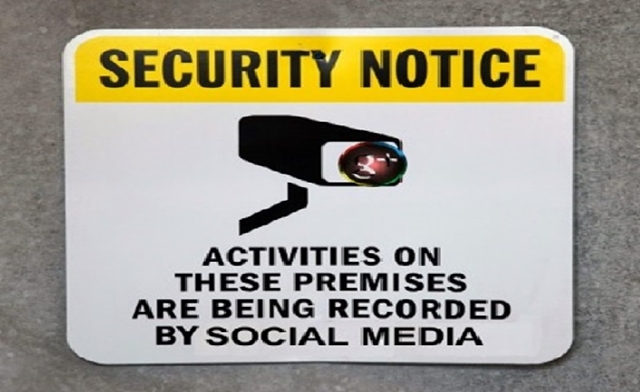Recent events have steered the national focus onto aggressive law enforcement and the public is not at ease with the situation. Physical and aggressive police behavior has people wondering what else is in store for them.
Well, they didn’t have long to wonder as new information is emerging regarding a different type of aggressive policing. It is a form of targeted policing which comes as a result of massive surveillance data collected around specific people, specific neighborhoods and even more variables.
This new data-mining technology is eerily reminiscent of the PreCrime unit in Tom Cruise’s “Minority Report” film set in 2054 where the police unit captures murderers before they have even made their kill. Although the concept in the movie remains just a really good science-fiction idea, there are so many advances in today’s technology that are gearing towards predictive policing by simply gathering data from publicly available online information such as social media.
One such surveillance technique is software offered by New World System that lets police dispatchers simply look up a person’s name to see if they have ever had any contact with the police before. Another software called PredPol claims that it can forecast risk times and place for future crimes.
READ MORE: You Post, We Read and That’s All: Facebook
Reuters report claims $7billion worth of federal funding is now going into public safety organizations to build a nationwide responder wireless network called FirstNet. A basic use of this network is to better services like a 911 dispatch but there is more to it than that.
Since 2012, an application called Beware has been sold to many police departments and it serves to collect billions of records of commercial and public data from criminal records to internet chatter to give back profiles in real time! The company’s website basically sells Beware as an application that collects data in seconds to alert 911 responders to “potentially deadly and dangerous situations while en route to, or at the location of a call”. Using the data it has gathered in mere seconds, Beware then warns the officer of the threat rating of the person, according to an article in Illinois newspaper.
The Beware website explains how quickly it scans electronic devices:
Accessed through any browser (fixed or mobile) on any Internet-enabled device including tablets, smartphones, laptop and desktop computers, Beware® from Intrado searches, sorts and scores billions of commercial records in a matter of seconds-alerting responders to potentially deadly and dangerous situations while en route to, or at the location of a call.
Let us say a 911 dispatcher send an officer to check out a situation at a certain house. Using the home address, the officer enter that into Beware and Beware sends back data to the officer about the home including who lives there, their cell phone numbers, their past convictions if any, their cars, etc… But that’s not all.
READ MORE: Hostile to Privacy: Snowden Urges users to Get Rid of Dropbox, Facebook and Google
Here is where it gets more interesting. Beware will then run a complete online check to find this person’s online persona in social media, comments, purchases and any other online record. Beware then analyzes that information and issues a threat level. The threat level could be high, for example, if the person has made offensive comments online at some point in their lives.
To a layman, there are so many things wrong with this picture. Allowing an application to label a person as a possible threat based on their online contributions may affect police behavior and decisions. Taking into account what is happening today in Ferguson for instance, people are asking what other online presence factors will increase the threat score? Would race be a factor?
People usually rely on their mental capabilities in making judgments in a serious situation. Relying on an algorithm to tell you whether the person before you poses a threat or not. Would such an application mean more scrutiny to minorities, to poor people, and to problematic neighborhoods?
READ MORE: Don’t freak out about Facebook messenger app, NSA already has your chats
If that were not worrying enough, we should recognize that technologies like this one allows the police to regularly monitor obedience of the people based on the whims of lawmakers, turning us into a nanny state and putting us under a routine code enforcement.
It can also encourage police to start indiscriminate surveillance while trying to find out offenders but not those that were caught in the act. Beware was used at a Phish concert in Colorado once where police used it to check people’s car license plates looking for possible troublemakers.
Maybe “Minority Report” was not so far off the mark after all. Technologies like Beware can actually empower law enforcement agencies to launch criminal investigations to create reasonable suspicion for suspects flagged by federal agencies. This means that search warrants can be issued due to the data from Beware, arrests could take place and the defendant would not even be able to challenge just how legal his surveillance was before getting arrested.
READ MORE: Not Just the NSA, Even the Local Cops Are Tracking You
There is no more “caught in the act”. Beware and other such technologies are predicting your possible criminal acts and allowing your surveillance. The more predictive policing is used, the more local police and other federal agencies have to keep things hushed up rather than disclose how they gained their information in the first place. The reason is that federal agencies do not allow the discussion of such technologies and there have been cases where police dropped evidence again a defendant in court rather than admit that the information they had on the defendant was obtained through mobile phone tracking.
If more of the public are made aware of this kind of equipment and its uses and purpose, then maybe the police would not be able to purchase it. One such case took place in Bellingham in Washington when police were given a federal grant to purchase Beware. At a mandatory public hearing, citizens understood how Beware worked and refused the purchase and so the deal fell through.
To those citizens, the mere idea of an application reading some of your online comments and deciding you are a major threat possibly based on some online joke of yours, could have armed police crashing into your homes ready to attack you at the first move you make because Beware said you were dangerous, is frightening.
Predictive policing, like the Big Brother notion of old, will continue to worry the average citizen. While it may keep crime off of our streets, it still needs a lot of guidance and training before it is put to use.
Source: Reuters










